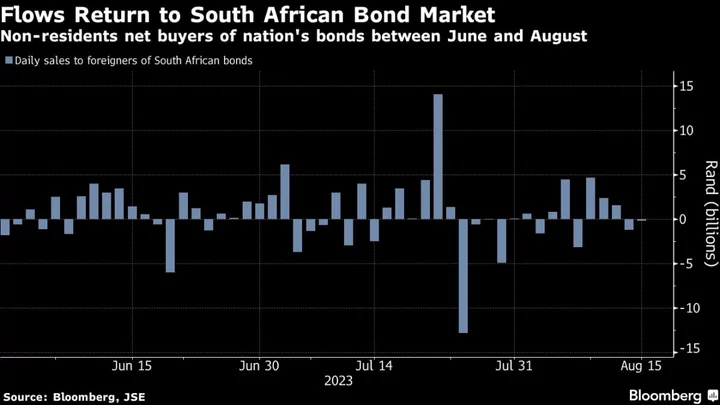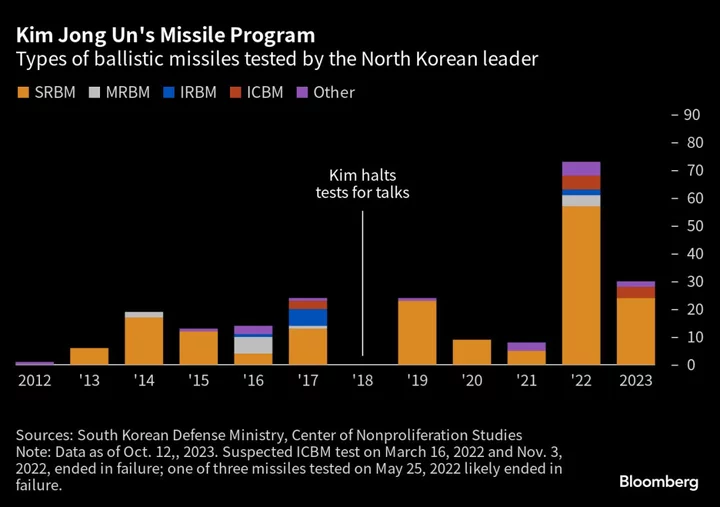South Africa’s rolling blackouts have been blamed by strategists as the single biggest factor weighing on the rand. So, signs that the crisis is easing bode well for the currency.
Prospects for gains in the rand in the next year or so are “really firm,” and much of this optimism is down to the outlook for electricity supply, according to Mamokete Lijane, global markets strategist at Standard Bank Corporate and Investment Banking.
“If we continue to resolve that issue — even if it’s not whittled to zero, but we’ve brought it to a place where growth can be better — that would increase our competitiveness, boost our rand,” Lijane said at a Bloomberg event in Johannesburg Wednesday.
South Africa’s state-run power company is unable to meet demand, subjecting the country to hours of scheduled daily blackouts that the central bank estimates may shave 2% off economic growth in 2023. Electricity Minister Kgosientsho Ramokgopa said this month that available generation capacity and unplanned breakdowns are improving at utility Eskom Holdings SOC Ltd.
There’s some evidence that foreign investors are responding to the slightly better power supply. Between June 1 and Aug. 15, non-residents were net buyers of 34.4 billion rand ($1.8 billion) in local bonds, based on data from exchange operator JSE Ltd.
During that period, blackouts reached so-called Stage six — when Eskom cuts 6,000 megawatts from the grid — only three times, according to data from ESP, a local app that provides updates and alerts on power cuts. That’s a turnaround from May where at least a third of the month was spent at that level.
The currency gained 2.6% against the dollar in that time, though it’s still 11% weaker this year at about 19.15 to the greenback. The median of analyst forecasts compiled by Bloomberg sees the currency averaging 18 in the first quarter of 2024, about 6% stronger from where it is now.
Read more: South Africa’s Power Availability, Unplanned Loss Improves
Longer-term, the rand’s fortunes rest on how soon South Africa can address structural challenges, said Lijane.
“Looking through the noise, I’m quite constructive on the rand,” she said.
--With assistance from Timothy Rangongo.









